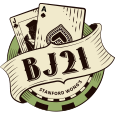Fellow short-term investors:
For years I've read, and learned through sorry experience, that betting the full Kelly amount is risky, and that most competent players bet less...or, amounting to the same thing, bring a bigger bankroll than Kelly would suggest, just to keep the risk of ruin low.
How is it, though, that the formula for obtaining the maximum rate of return in a betting situation would also frequently produce such a high risk of ruin?
For some wierd reason, I was thinking about this today while driving into work. I'm not a mathematicain and am a pretty literal guy, so I came up with this example which demonstrates the problem:
First of all, as we all recall, the Kelly formula stipulates that the best bet is "The edge over the odds." So, if you've got $100,000 in your betting bank account, and if you're betting in a lottery, for instance, where a ticket costs $1 and the odds of winning are one in 100,000, and the payoff is $1,000,000 you have a ten to one advantage (great odds!) Thus the Kelly Criteria would be met if you bet 10 (the edge) divided by 100,000 (the odds) times your bankroll, which would be 1/10,000th of of your $100,000...or $10. This seems reasonable.
On the other hand, let's assume that you're playing mini-roulette with a wheel that has only 10 slots, so the odds are 10 to 1 that you'd win any single bet. Let's assume that the payoff is $100 on a $1 bet, again a 10 to 1 edge. Kelly would tell you to bet 10 (the edge) divided by 10 (the odds) = 1 times your kitty, or ALL $100,000 on a single spin!
Now you can see that if a team of 10 or 100 players used this strategy, they'd win money pretty fast, but 9 out of 10 individuals would be bankrupted just so that the 1 out of 10 could win big for everybody.
Anyhow, I don't play on a blackjack team, and so I don't bet the Kelly amount.










